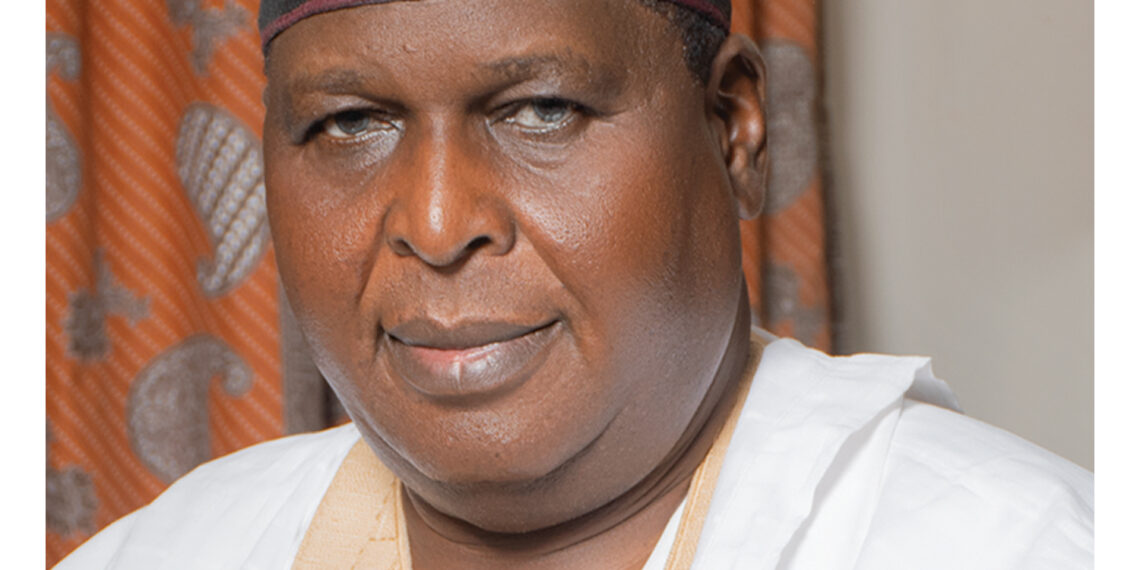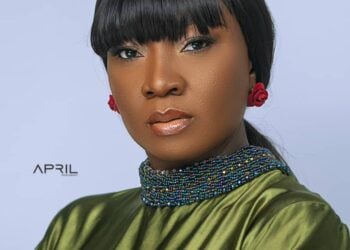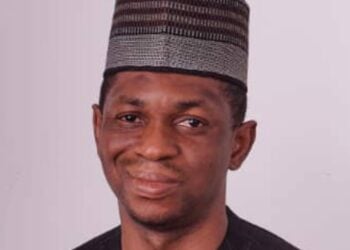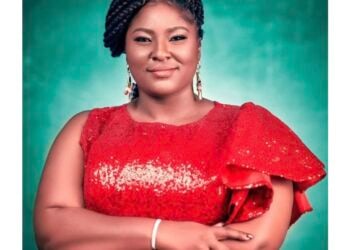Otunba Olusegun Runsewe is the director-general, National Council for Arts and Culture (NCAC). In this interview, he says Nigeria has a gold mine waiting to be tapped in the culture and tourism sector. He also speaks about his love for his country.
As president of the World Craft Council (WCC) and director-general of the National Council for Arts and Culture (NCAC), how can Nigeria showcase its diversity, its amazing Culture and Art beyond our shores?
You have said it, very rightly, that Nigeria is magnificently endowed with diverse Arts and Cultural resources. In fact, Nigeria has over 370 ethnic groups, each with at least a unique cultural manifestation. The multi-ethnic nature of Nigeria also clearly reflects in its cultural diversity. The onus, therefore, lies on us to carefully repackage our rich cultural resources, promote and aggressively market them to the world.
This we can do by being visible at international fora, be it cultural, social, political or even economic. We need to feature more regularly in international cultural exhibitions. For example, while I was the director- general of the Nigeria Tourism Development Corporation (NTDC), Nigeria featured in major international tourism expositions such as FITUR, Madrid Spain; ITB Berlin, Germany; Arabia Travel Market Dubai, UAE; World Travel Market (WTM), London, UK, and Africa’s Travel, Idaba, South Africa. In all these fairs, we not only showcased Nigeria’s tourism endowments, we also staged cultural shows and projected Nigeria’s unique culture to the world.
I recall that in 2010, I led a delegation of Nigerian contingents to South Africa during the 2010 FIFA World Cup. Our exhibition stand in Lesedi Village was adjudged the best among all the stands. From our stand, we launched promotional campaigns to the world that assembled in South Africa for the World Cup. Although we did not win the tournament, we won the best pavilion.
You see, football is played by 22 people for only 90 minutes, but that 90 minutes offers a lot of opportunities for nations to showcase their cultural strength and other uniqueness to millions of spectators and fans.
I replicated the South African feat in Russia during the 2018 FIFA World Cup. The NCAC was all over the place, drawing global attention to the green-white-green Nigerian flag and the diversity of her culture. Although we lost prematurely at the football pitch, we won the hearts of the world with our fascinating cultural displays, and I think that is what we should be doing. Every major global or continental event should be accompanied with a corresponding cultural content.
Equally, we must pay key attention to international cultural exchanges. The National Council for Arts and Culture is on a regular interface with members of the diplomatic community in Nigeria. We engage with them through the platform of Pre-INAC dinner, the International Arts and Crafts (INAC) exposition itself and through regular participation in their cultural events and their participation in ours. Whether you like it or not, every foreign mission in Nigeria is representing a country. The impression they have of us will greatly influence the way we are assessed by their respective home countries.
In all, we need to reflect high-profile cultural content in all our events, in our airports and points of international entries, our missions abroad and all that.
You were one of the coordinators of the Commonwealth Heads of Government Meeting (CHOGM); what made it possible for Nigeria to host it, and can it be achieved in today’s Nigeria?
Yes, I was a key player among the organising team of CHOGM. CHOGM was a huge success. It remains one of the biggest diplomatic outings for Nigeria. For over 50 Commonwealth countries with Her Excellency, the Queen, to be hosted in Nigeria was not a small feat.
Several factors worked together to make CHOGM a success. First, there was the political will. We must give it to President Olusegun Obasanjo; he demonstrated uncommon courage and commitment. Once the president was overtly committed, all of us had to simply fall in line. That was it.
Again, there was the enabling social environment. Nigeria was safe. There was no security threat. Nigeria was stable and we were well respected among the comity of nations.
We had all it took in terms of facilities. Don’t forget that we had to bid, to compete with other interested nations. I recall that I faced a panel of Commonwealth officials in the UK. At the end, we defended our bid, we won and we successfully hosted CHOGM hitch-free. It was a moment of glory for Nigeria.
Based on the work you have done in this sector, what would you expect ten years from now?
When you sow, you expect your seed to germinate, to grow, to flourish and to yield desirable fruits. I am making my modest contributions. I am drawing national attention to the investment opportunities in the sector. I am saying that Culture and Tourism have the potential for replacing oil as the mainstay of our economy. My earnest desire is that in the next 10 years, the sector would have assumed its pride of place as a pillar of our economy.
How can Nigeria rebuild its international image?
Conscious and concerted rebranding. We must step up the machinery of value re-orientation. We must re-engineer our psyche through a sustained process of attitudinal transformation.
Yes, for us to rebuild our image, values must be right, attitudes must be proper, character must be ideal and we all must be committed to our national ethnics. Our leaders must take the lead, from religious and traditional institutions to our political leadership. We must comprehensively carry out what I call a moral rebirth. We must adopt the principle of SWOT – Strength, Weaknesses, Opportunities and Threat – to rebrand Nigeria: We must consolidate on our strength, work to overcome our weaknesses, take advantage of our opportunities and resist all threats to our national image and development. That way, we would be able to rebrand our national image and restore our integrity and our pride.
People describe you as an amazing person who is passionate about Nigeria; what motivates you?
I thank all those Nigerians who are appreciative of my modest contributions to the development of Nigeria. It is true that I am passionate about Project Nigeria. My conviction is that we have no other country than Nigeria. Only Nigerians can develop Nigeria. You cannot reject your face because you have one eye. Equally, you cannot stop bathing and caring for yourself because people say you are fine or beautiful. You must keep caring for yourself to look better. No angel will ever come from above to build Nigeria for us. America was developed by Americans. Japan was made great by patriotic Japanese. So, Nigeria must be developed by Nigerians. This brings to mind the admonition of former President Olusegun Obasanjo: if you think well, you will do well, if you do well, Nigeria will go well. This is my overriding motivation in everything I do. I put Nigeria first. In anything I do, I ask myself the question: will my action move Nigeria forward? If yes, I go for it without fear; if no, I avoid it without guilt. So, it is love for Nigeria. I want to see Nigeria become a country of my dreams. That is what gives me the inspiration to do all that I do.
Many Nigerians are uninterested in the country’s history; why do you think that is?
Nigeria is a great country with great people. We may have a chequered history of evolution as a nation. Every nation has to go through one turbulence or the other. America had to through a Civil War, a war of unification. We have our own past – the slave trade, the civil war, the coups and the counter-coups, but have remained one indissoluble nation.
We have our founding fathers – our nationalists – the Awolowos, the Tafawa Balewas, the Sir Ahamdu Bellos, the Nnamdi Azikiwes, the Zik of Africa, name them. Who will reflect on our past and say he does not like Nigerian history? Yes, of course, in any nation, there are some bad eggs – a few bad people who give Nigeria a bad name. Even in the Bible, there was a Judas. So, in every twelve people, there is a Judas. Honestly, I do not understand what you mean when you say some people are uninterested in the country’s history. Those who are ashamed of Nigerian history can go ahead. But for me and the vast majority of Nigerians, we are proud to be Nigerians. Emmanuel Aggrey, the Aggrey of Africa, once said: “I am proud of my colour; whosoever is not proud of his colour is not fit to live”. That is the philosophy. That is my conviction.
You may be aware that I am a strong advocate of the return of History and Social Studies in our basic education curriculum. I am happy that this clarion call has fallen in the good ears of many state governors. Our children must know our past. They must know our heroes and heroines. To do otherwise is to educate our children away from our culture, our environment. Any education that is responsive to the developmental aspirations of its people must be culture-based. Ours cannot be otherwise.
How can we get the young people of our nation to become more involved in the arts and make a meaningful living from it?
Good question. By catching them young; by cultivating and sustaining their interest; by exposing them to the investment opportunities in the sector – that is part of what we are doing. For every programme of ours, there is a youth content, skill acquisition content to equip our youths with the requisite skills in arts and crafts that can make them self-reliant. In our International Arts and Crafts (INAC) Expo, there is a critical component called the Investment Roundtable where we point attention to the vast investment opportunities in the sector and educate the youths on how to tap into them. In NAFEST, there is a Cultural Roundtable on Entrepreneurship. The focus and the goal are the same. We have various youth competitive programmes in the National Festival of Arts and Culture (NAFEST).
This is our effort to build knowledge and develop the youths. Since my assumption of office, we have trained over 10,000 youths, women and the indigents in different vocations in our skills acquisition programmes – painting, gele tying, soap and bead making, perfume making, waste to wealth and all that. We not only train, we give start-up stipend to outstanding trainees. That is how we have been doing it.
You were involved in the Abuja Carnival, are there plans to replicate that again?
Yes, I was not only involved in the Abuja Carnival, I was at the heart of it as the pioneer chairman. The vision of Abuja Carnival was that it would run experimentally for five years. The National Festival of Arts and Culture (NAFEST) is there – the biggest festival in Nigeria, the unity forum. It evolved after the Civil War in 1970. It comes richer with every edition. We cannot be running Abuja Carnival and running NAFEST by the same Federal Ministry, financed by the same government budget. I see it as a duplication of efforts and of resources. My objective opinion is that NAFEST should take precedence over Abuja Carnival. Bring the carnival funds to NAFEST and make it richer and better, and the honourable minister of information and culture will take the credit for all the success. This is my take.
What was it like growing up in Nigeria during your time?
That question inspires in me a deep sense of nostalgia. I am a Yoruba man born in Kaduna, northern Nigeria. Growing up in Kaduna was such an exciting experience. It was so fulfilling going to the house of Muslim brothers to feel at home with them during Sallah celebration and also receiving them in my house for the Christmas festivities. There was no discrimination along religious and ethnic lines. I saw myself as the same with my Muslim brothers and Hausa friends. The unity was so incredibly fascinating. I still remember very vividly some of my friends, Dr. Aminu George, Suleiman Kuta, Kabiru Mamman, Alhaji Murtala, Alhaji Bashir, Mallam Gadaffi, Alhaji Amani, Alhaji Alimi, Shehu (Principal), Alhaji Idi Faruk and many others. No tribal or religious sentiments. We all lived together in peace. The reason for recalling these names is to show that I still remember a wonderful and God-fearing life.
Those days, you could travel alone as a youth in a train, from Lagos to Kano or Makurdi. There was no fear, no threat to peace. Nigeria was secure, stable. It was peaceful and a lovely place to be.
What can we anticipate from you and the agency in the future?
Well, I will continue to do my best to commit myself fully to the Nigeria Project and to work and pray for Nigeria to actualise the national vision of our forefathers.
As for the National Council for Arts and Culture, the place I now serve as chief executive, my prayer is that God should give me the wisdom and strength to continue to improve on our service delivery. At the end of my tenure, I look forward to a successor who will be able to continue from where I stop and build upon my legacy as the chief executive. This is my desire.






